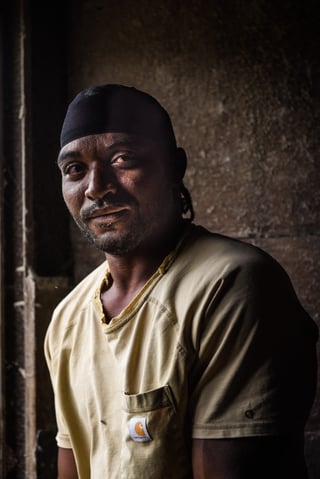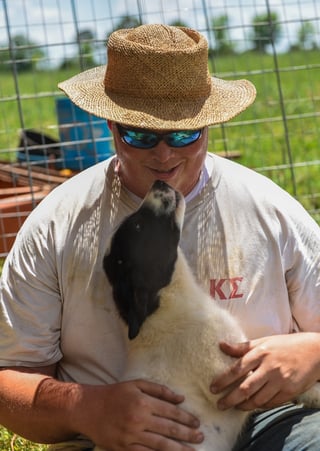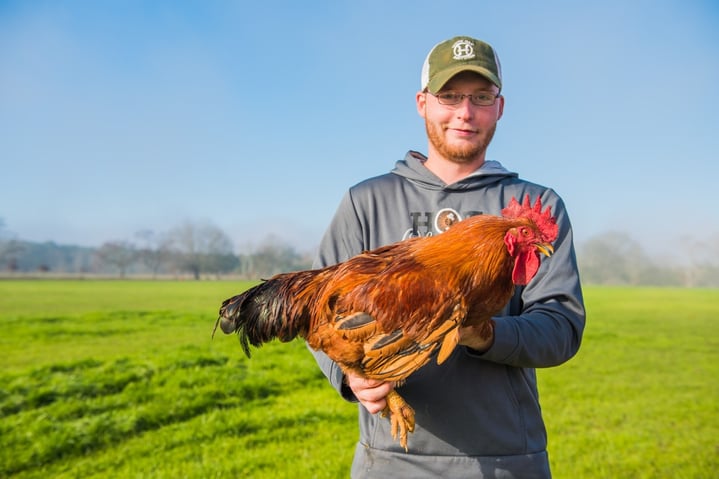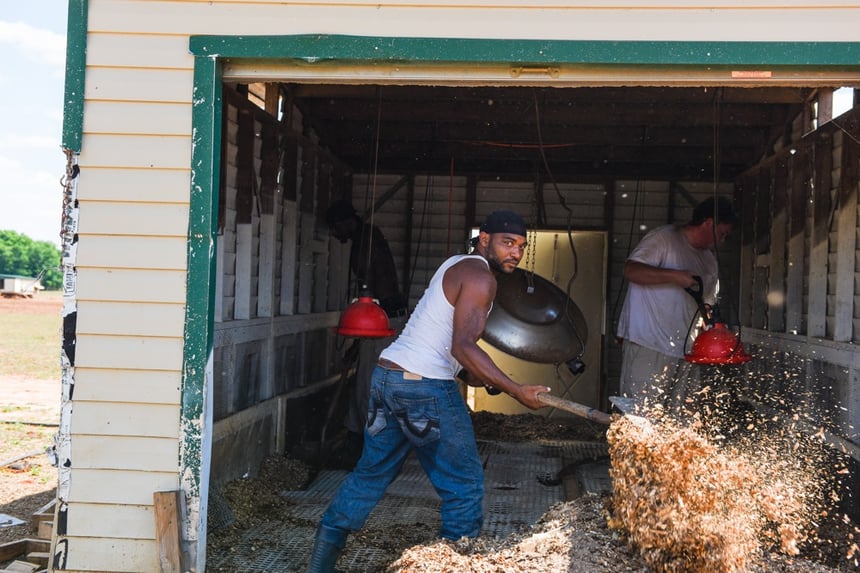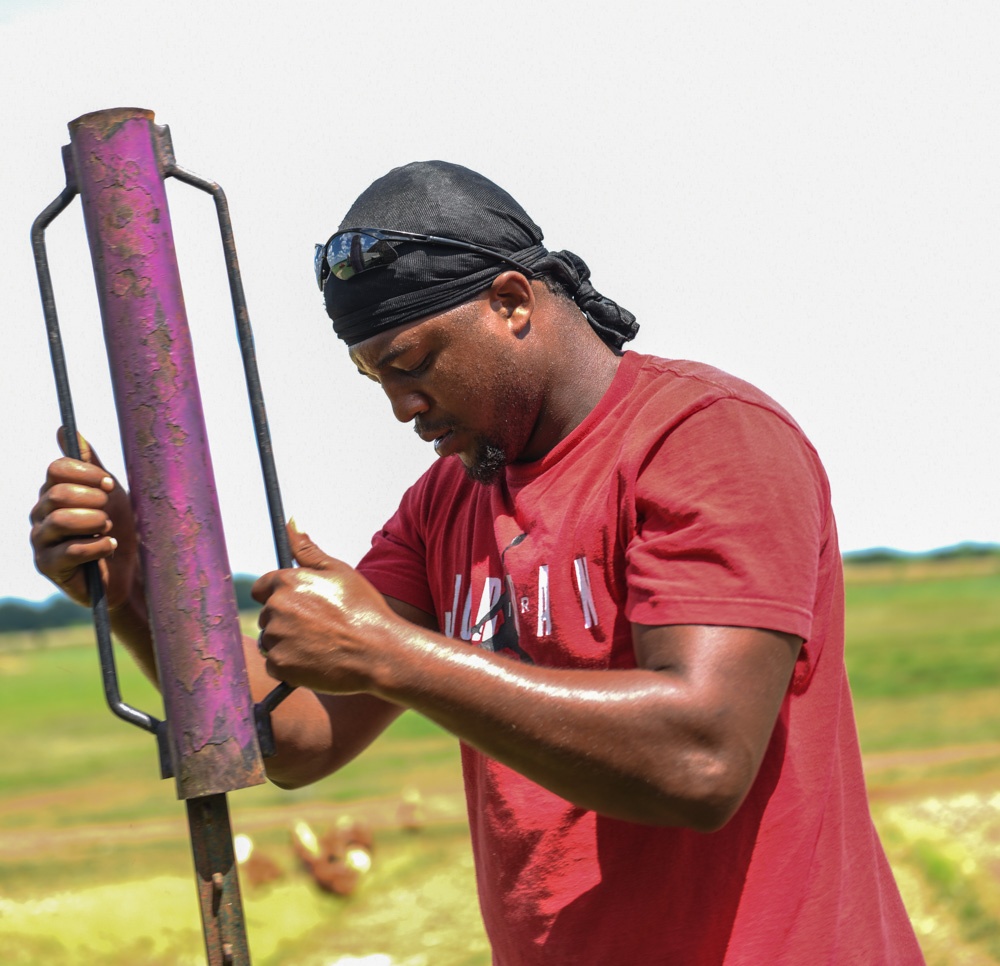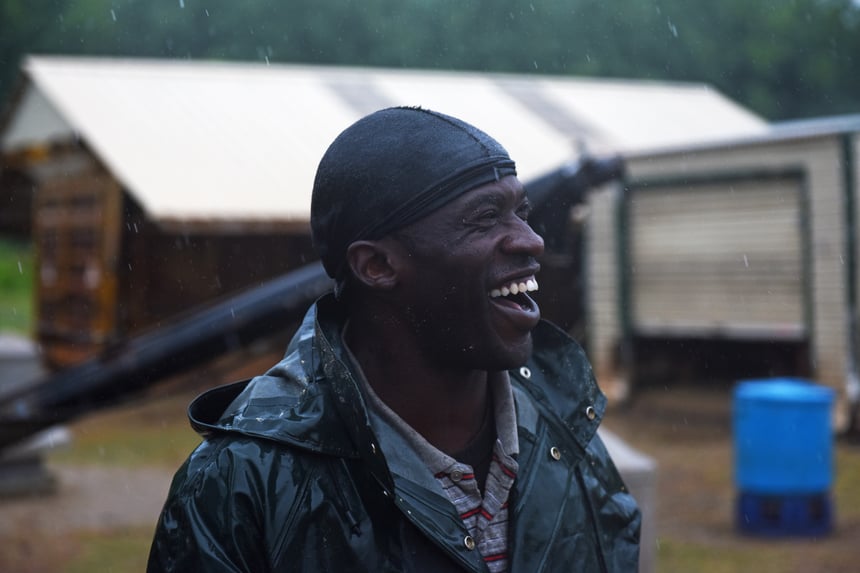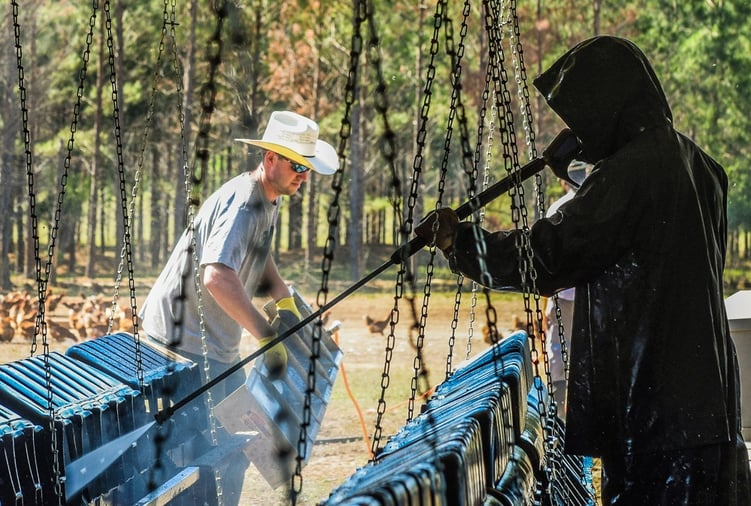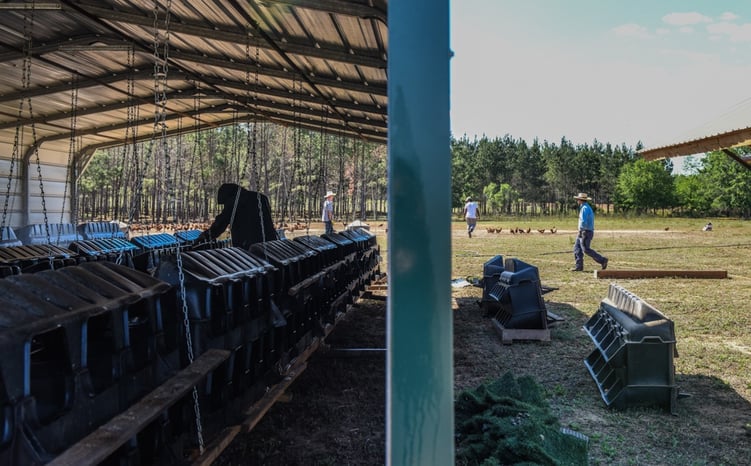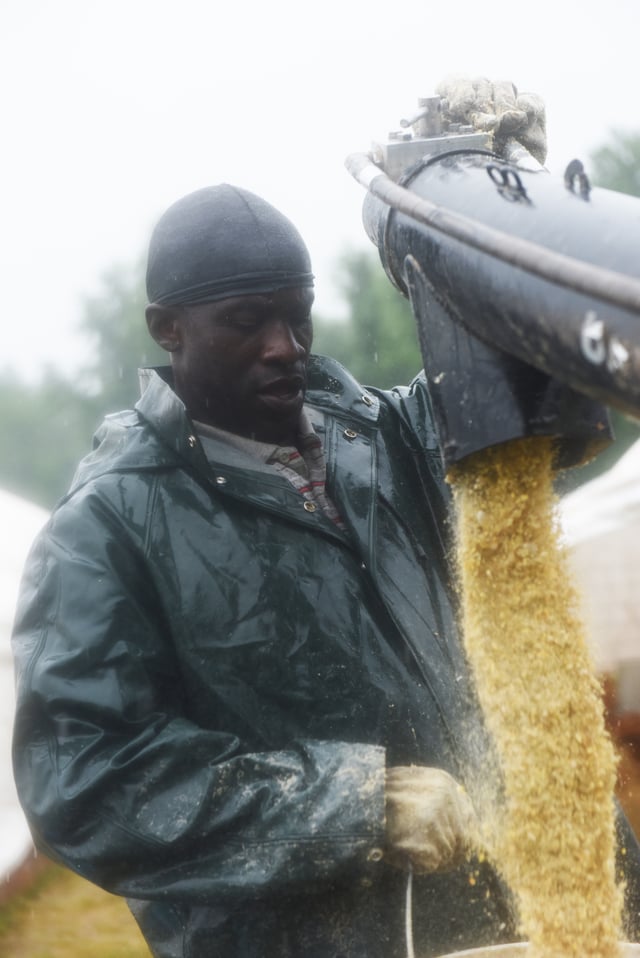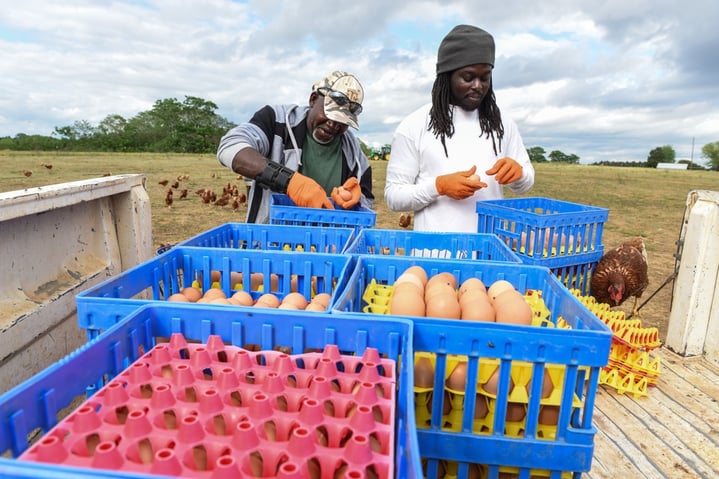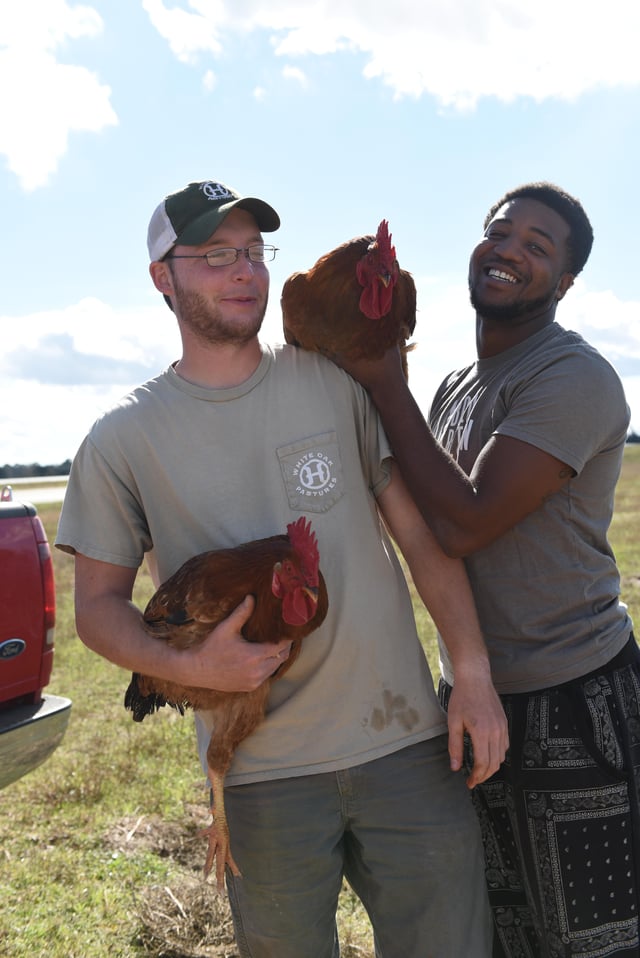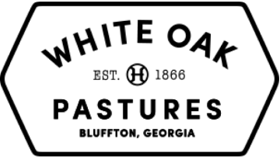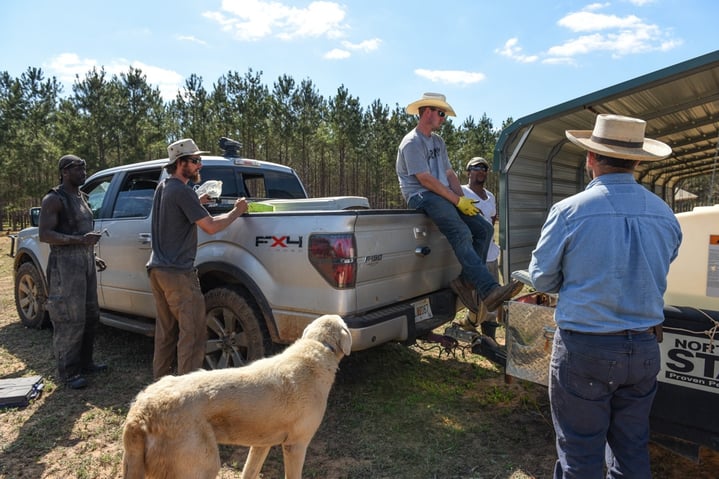
Executing mobile pastured poultry is not easy. It is especially challenging at the unprecedented scale here at White Oak Pastures. Despite the daily challenge, as our Poultry Production Manager Jeff Lackey says, “conducting the orchestra that is our pastured poultry operation” is worth it at the end of the day. We know our birds truly live the highest quality life.
This requires an immense effort - read on to learn more about our poultry staff and their daily routines.
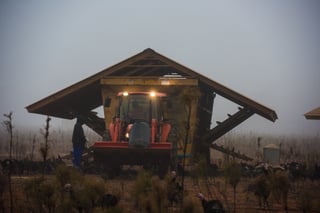
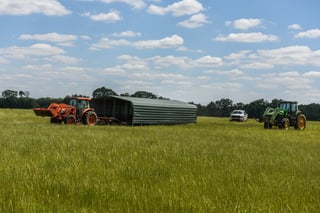
Our pastured poultry staff is the largest field crew on the farm. They work very hard in the cold winter rain and intense Georgia summer heat and humidity to make sure our birds are happy and healthy. To accomplish this, we have one full-time person feeding, one watering, one tending the brooders, two tending turkey brooders and turkeys on pasture, two harvesting, three moving housing, and two collecting eggs.
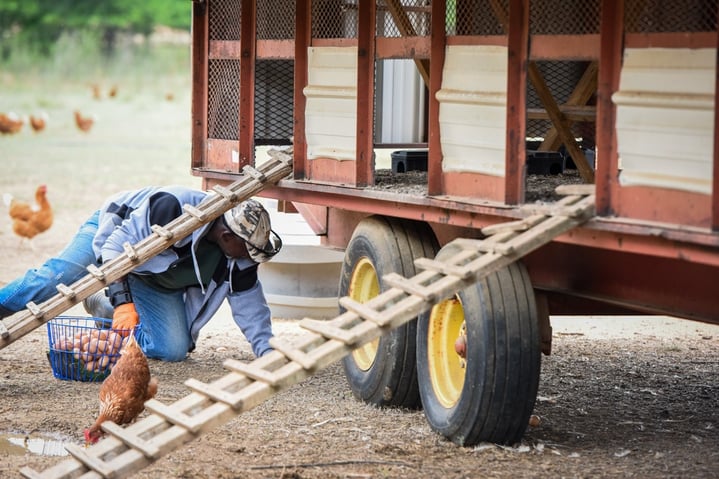
We feed our birds every single day, as taking days off is risky. Farming is extremely weather dependent, demanding we have contingency plans to the best of our abilities. We have been in many pickles due to storms or freak power outages. Our grain silos run on electricity and if the power is out we are unable to get feed without renting a large generator. Furthermore, equipment can fail, for example, if the tractor or feed wagon break down. We never know when, therefore, we always have to be planning as if it is going to happen. Our goal is to give ourselves nearly two days to fix a near-worst-case-scenario.
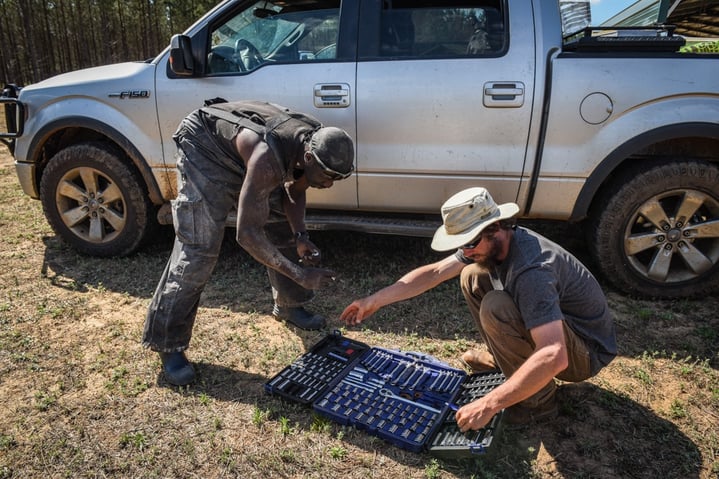
All of our broilers are located in pastures without wells, requiring water to be delivered into barrels with a 1000 gallon water tank pulled by a tractor. Thankfully, all of our laying hens are in pastures with wells which automatically provide water via a hardline. Both the laying hen troughs and broiler water barrels require daily cleaning, and combined with delivering water to the broilers, keeping clean water flowing to all birds is a full time job.
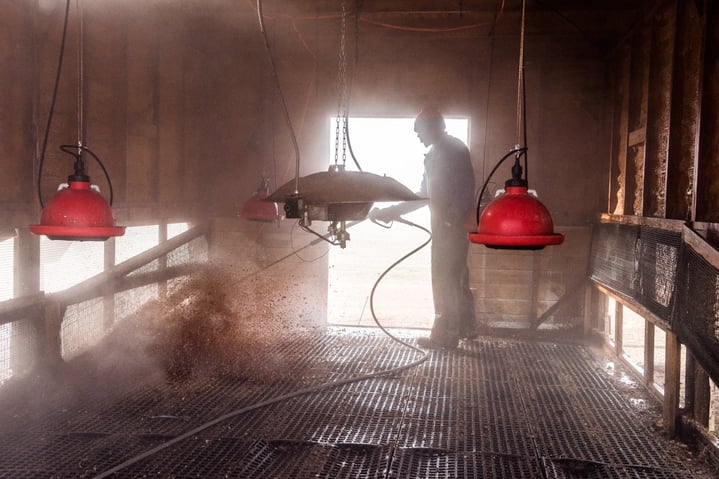
We have one full-time employee solely dedicated to tending the brooders, which is common for a mobile pastured poultry operation at enterprise scale. This is a core component of our biosecurity efforts, as the young birds in the brooders are just starting to develop their immune systems. This prevents chicken manure in the fields from being tracked back into the brooders.
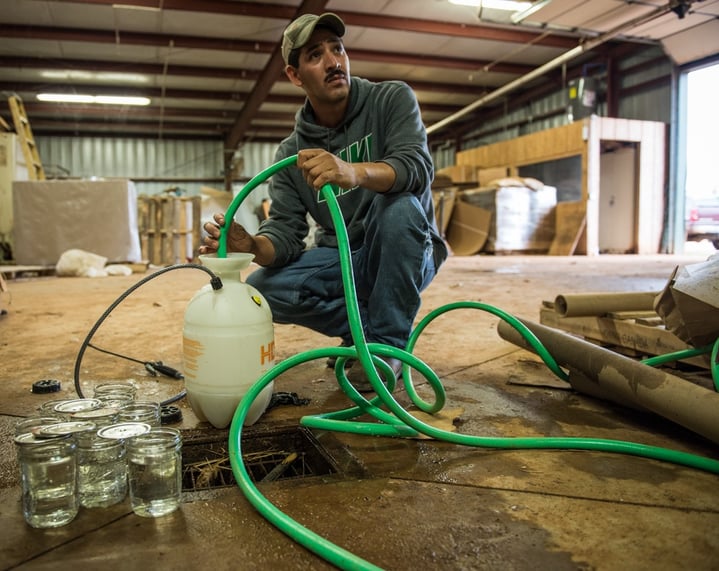
We have two employees who solely care for the turkey brooders and turkeys on pasture, again due to biosecurity. Blackhead is the disease of concern. Chickens are not as affected by it, but it is commonly fatal with turkeys.
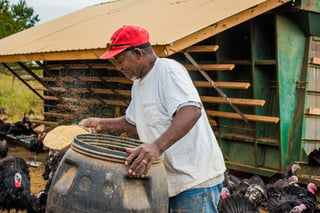
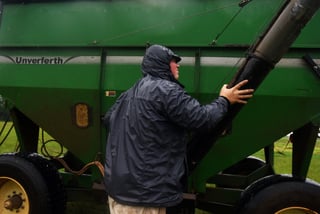
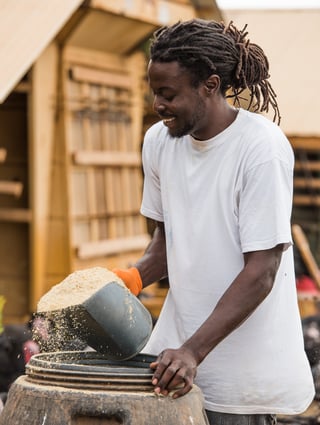
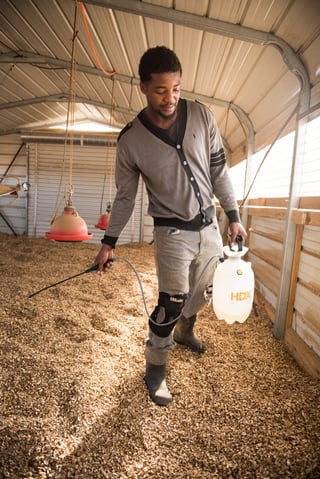
Our two full time harvest employees start work before dawn during the week to collect the birds, put them in crates, and deliver them to our on-farm, USDA-inspected, poultry processing plant. This is done while it is still dark so the birds are calm and unable to see the workers. Our poultry plant begins operating at the crack of dawn and our harvest employees ensure that there are birds to start processing at that time. Our harvest employees collect birds until mid-morning. After this, they check every single set of birds for dead birds, which are routinely present due to our eagle predation issues. It is important to remove the dead birds to avoid cannibalism and to keep the pastures clean.
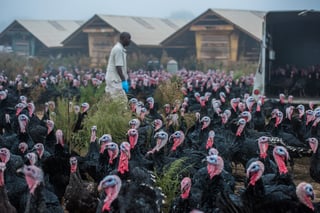
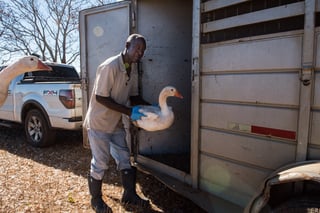
Our brooder, feed, and water employees all need one day a week off and that one day a week is done by employees on the moving crew. The moving crew is comprised of 3 full time employees. The moving crew’s main responsibility is to move birds out of brooders and to the pasture, continuously move the housing forward while it’s on the pasture, and prepare housing for a new round of birds after all the birds have been harvested by shoveling, pressure washing, and using biofertilizer. The moving crew have duties that ideally are accomplished every single day, but they are the backup for feed, water, and brooders during the week.
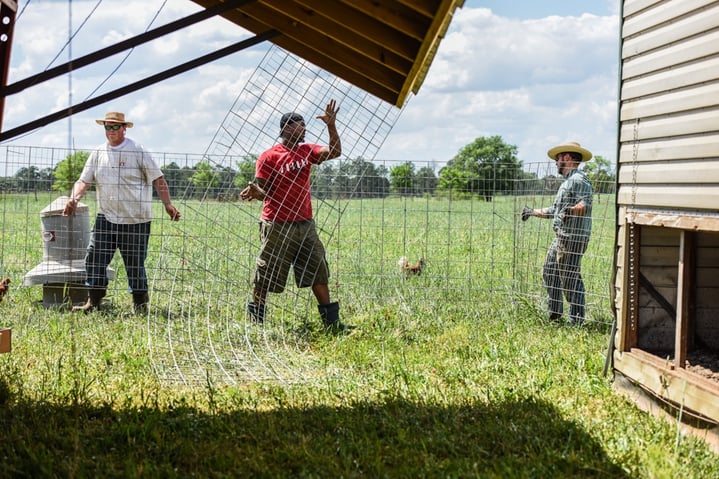
We have two full time egg collectors who collect and transport eggs to our egg cleaning and candling facility. They also regularly clean the nest boxes and spray the Astroturf inside the nest boxes with biofertilizer. These activities are crucial to support maximum health in our layers to support maximum egg production.
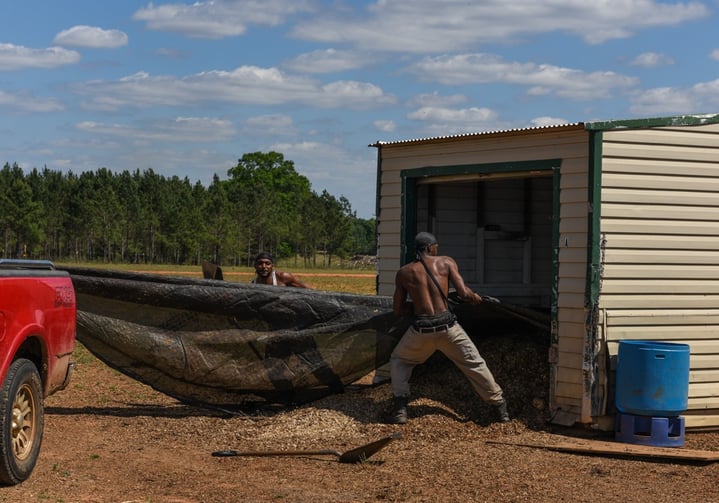
Pastured poultry is helping us rejuvenate depleted land, slowly transforming it back to lush pasture. It also provides full time jobs and delicious, healthy food in our rural community. We believe we can heal the earth and the community with humane, regenerative farming. No one said it would be easy or simple, but we try, every day, to make it worth our time and effort.
